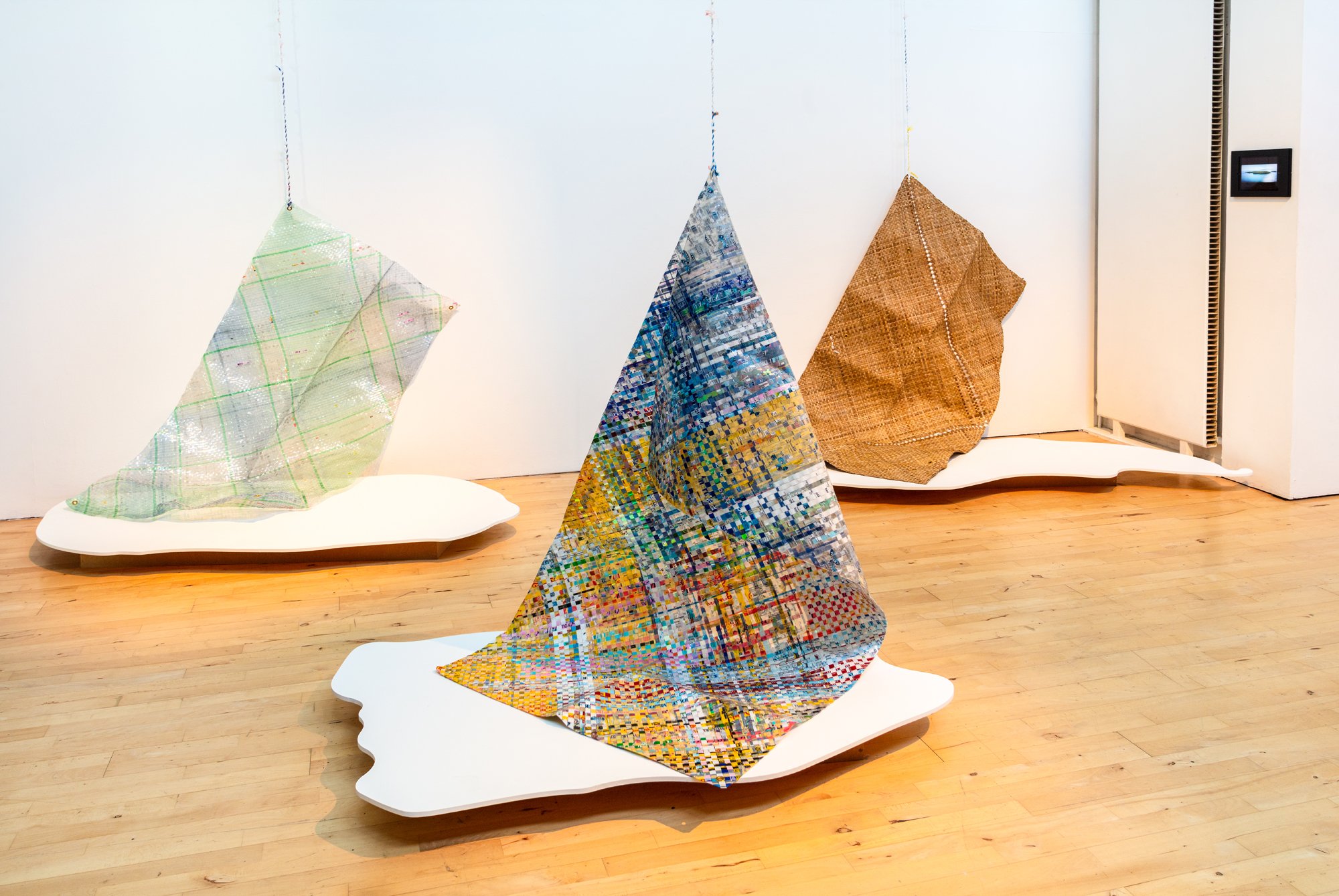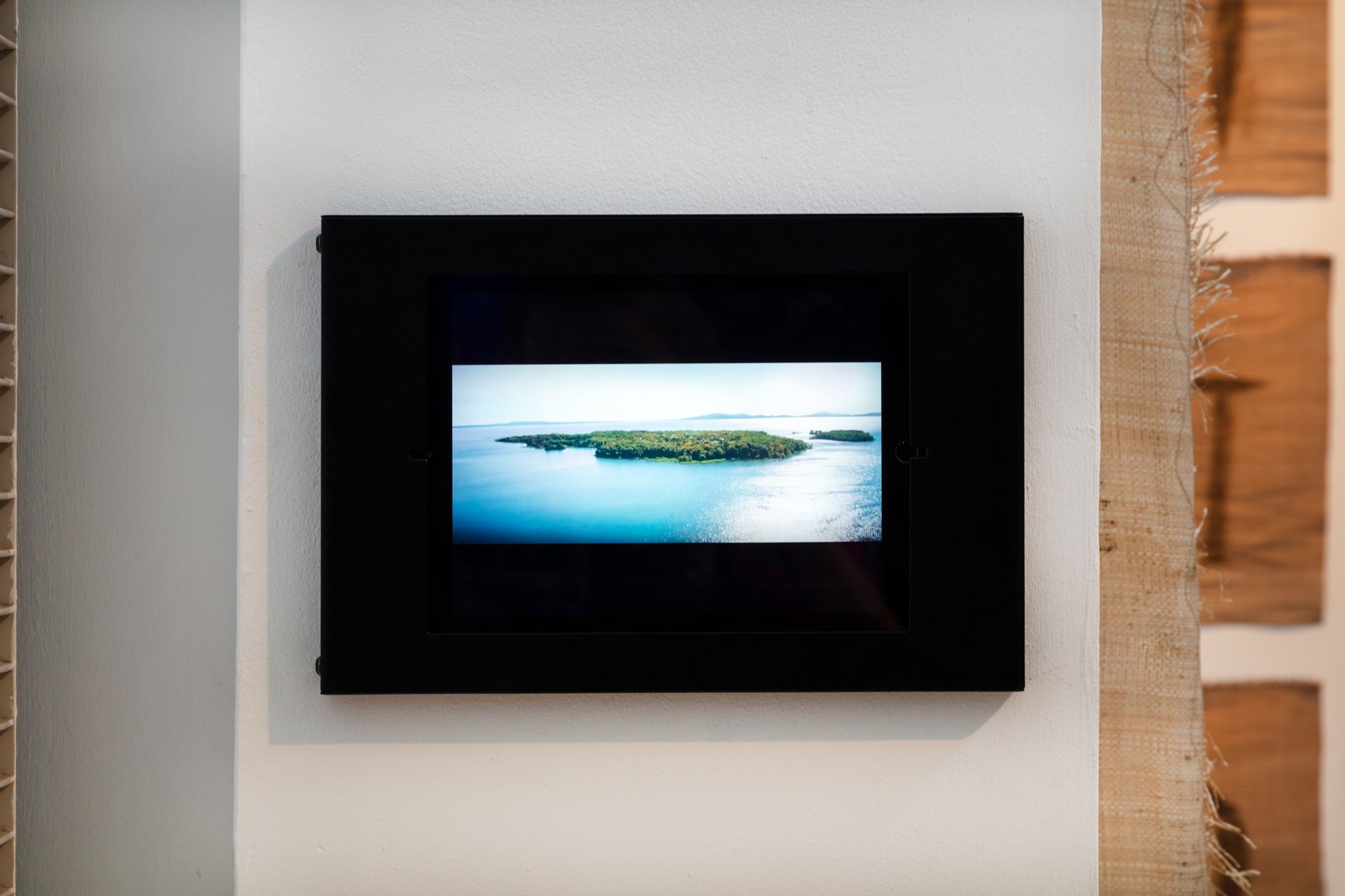A World of Islands | Stanley Picker Fellowship and Exhibition | 2021-23
A World of Islands
- On Palms, Storms and Coconuts
considers the movement of indigenous knowledge, practices, materials and people, and historical and current fabrications of tropical utopia and dystopia. Locating the ‘tropics’ as both a mythological and real place with shared colonial and ecological trauma but wildly divergent histories and cultures, the exhibition unpicks some of the clichés and relocates agency in the ‘tropical’ narrative.
This exhibition explores these themes in the context of one of the largest diasporic tropical populations, dispersed in over 100 countries through forced, government-sanctioned and voluntary movement across oceans. Here, A World of Islands brings together artistic perspectives and research on the Philippine archipelago, its climate, its people and their movement over seas and oceans.
Filipinos have played a disproportionate role in worldwide maritime trade, currently making up 20% of the international maritime workforce. The importance of the sea in a place where it makes up five times more space than land is explored through Derek Tumala’s work. The experience of contemporary Filipino life and diaspora is highlighted through artworks by Carol Anne McChrystal, Ronyel Compra, Alex Quicho and Stephanie Comilang that touch on memories, rituals and practices of home and community-making.
The exchange of plants and craft, building, food and medicinal knowledge during the period of the Manila-Acapulco Galleon trade between Mexico and the Philippines (1565 – 1815) had a significant impact on both places. Stanley Picker Fellow Ligaya Salazar’s project explores practices of ‘making home’ amongst Filipinos displaced by the galleon trade in coastal pacific Mexico through a collaboration with Ceramica Suro in Guadalajara, Mexico.
Stephanie Comilang is an artist living and working in Berlin. Her documentary based works create narratives that look at how our understandings of mobility, capital and labour on a global scale are shaped through various cultural and social factors.
Ronyel Compra is a visual artist who integrates the techniques used in local crafts production and trades into his practice as reflections of memories, history, and experiences of places and his hometown.
Carol Anne McChrystal is an artist whose materially-driven sculpture practice uses chemical processes and labor-intensive hand-making to explore the legacy of colonialism and trade, as well as the ways in which the climate catastrophe has compounded these histories of inequity.
Alex Quicho is a writer and artist in London. Her work focuses on multi-scalar violence and pleasure; affective experiences of technology; and resonances between pre-colonial spirituality and post-colonial futurity.
Ligaya Salazar is a curator focused on contemporary interdisciplinary practice at the intersection of design, art, craft and graphics. Her approach is shaped by an interest in how audiences can be positioned at the heart of curatorial practice, enabling a human-centred take on storytelling. Salazar was appointed to the Stanley Picker Fellowships in 2021.
Derek Tumala is a visual artist working with new emerging technologies, the moving image, industrial materials and objects. His practice revolves around the realms of science and nature meditating on the idea of interconnectedness.
The fellowship is supported by the Stanley Picker Gallery, Kingston University.
To download the exhibition guide with contributions from Carol Anne McChrystal, Alex Quicho and Ligaya Salazar and additional pieces from Rosalia Namsai Engchuan and Jay Nathan T Jore, please click here.








